Abby Bettersworth
In Celebration of the Horse
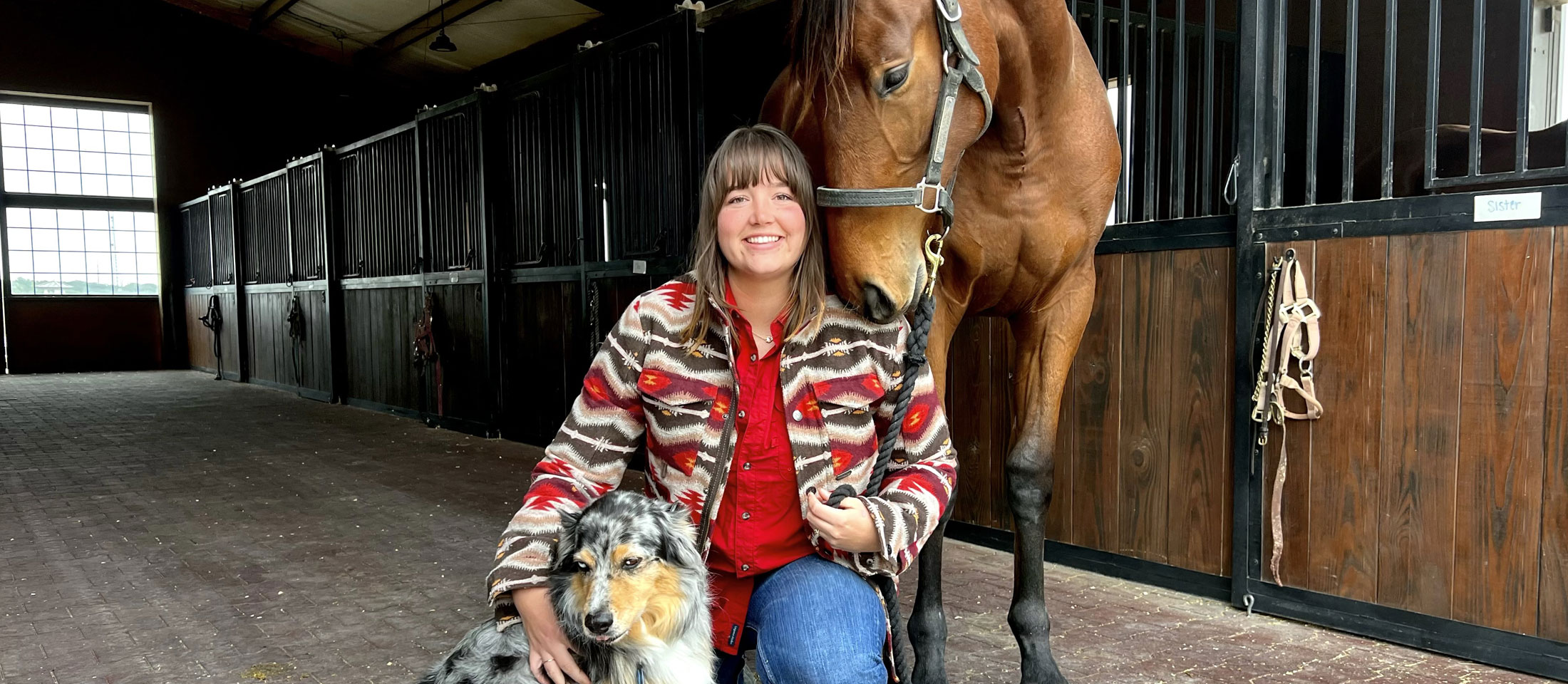
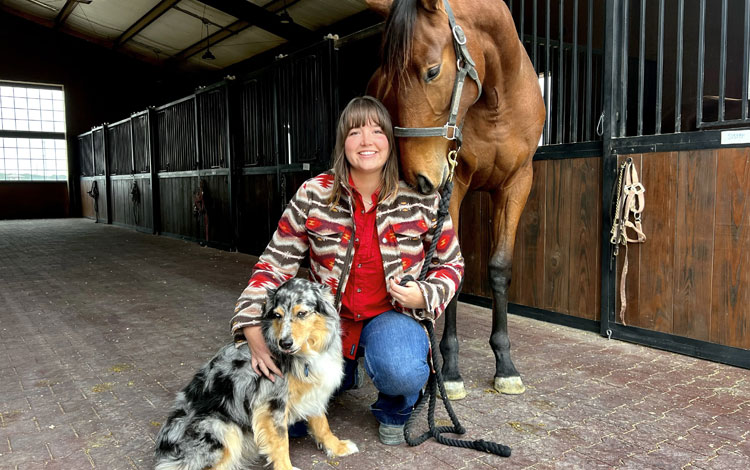
Photo Courtesy of Abby.
On this National Day of the Horse, we take you to the heart of San Antonio, Texas, where Abby Bettersworth works, rides, and trains racehorses and spends most of her days up before dawn and out after dark working, grooming, training, checking, feeding, and studying racehorses.
She currently works as a licensed racehorse trainer, where she has the opportunity to learn alongside the best, all while managing the operation for the Detmar Family at Rosita Farms. “I manage his (Mr. Detmar's) horses and also train the ones he wants to eventually race,” Abby said. She continued, “He has horses all over the United States, under other trainers as well, and I oversee those and communicate with those trainers too, just to make sure everything's on track, racing, and everything is going good for them.”
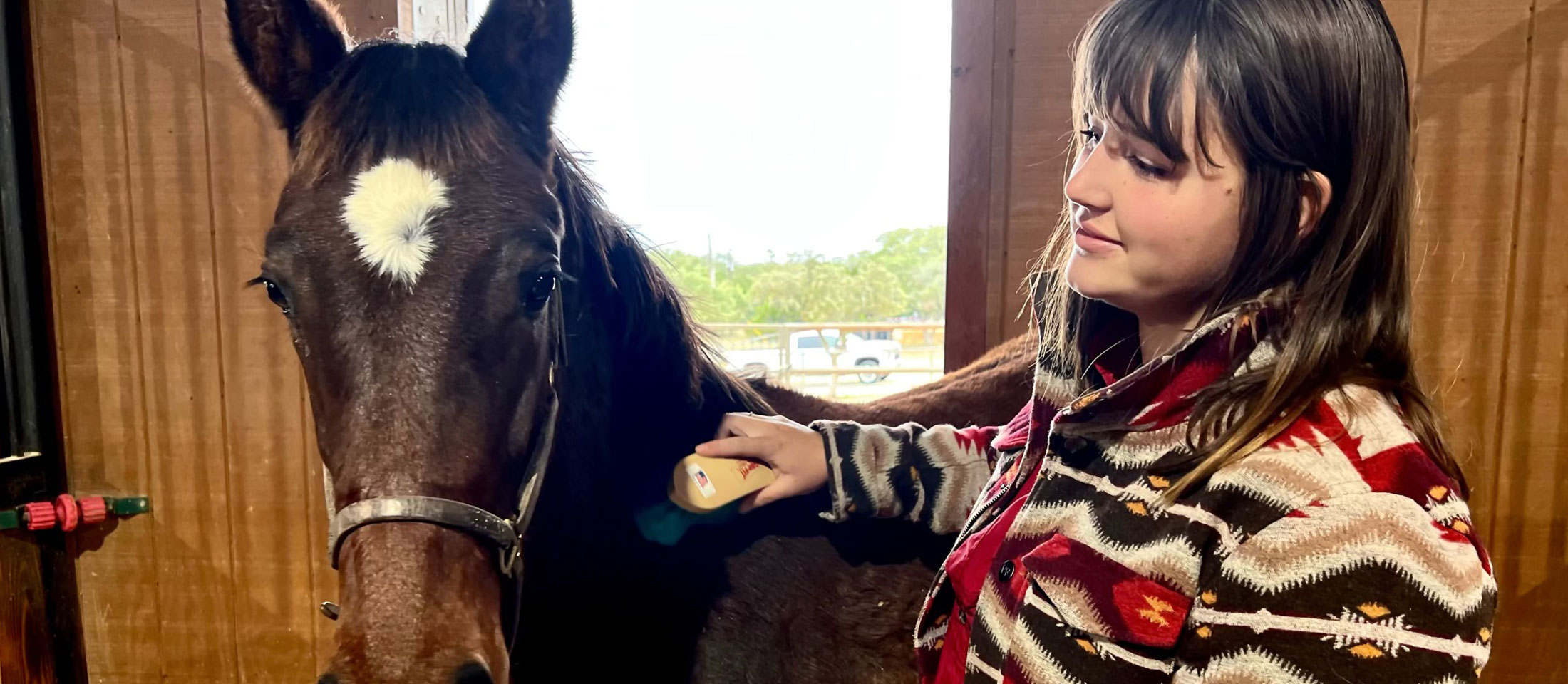
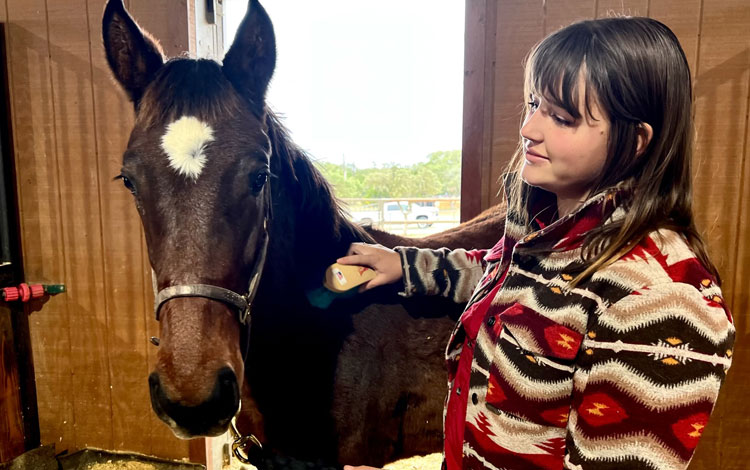
Photo Courtesy of Abby.
The training process is challenging and time-consuming, but rewarding in the end. “Right now, we have two yearlings in training and we're starting them under saddle getting them used to being ridden every day in our arena,” Abby said. She went on to say, “Then, I have a three-year-old who is actually my first racehorse that I started myself and we've been going back and forth to the track, doing workouts and getting ready for her first out, hopefully in January of 2023.”
Abby hasn’t always been in the racehorse scene though. She started out on the Equestrian team at Tarleton State University working with Quarter Horses, where she took a colt training class and fell in love with the art of horse training. Next, she worked for several trainers who guided her along the way. One thing she learned very quickly was that Thoroughbreds (a breed of horse commonly used for racing) and Quarter Horses are vastly different.
“It’s crazy how different they are from each other,” Abby said. “They [Thoroughbreds] have a lot of personality and I call them ‘drama queens’ because they let you know what they are thinking and feeling a lot more than Quarter Horses do.” That’s what seems to keep things interesting at the barn and in the practice pen.
Even though Abby is the trainer, she said it’s a learning curve training Thoroughbreds. She learns right alongside the horses. However, it’s evident in her training style that she has a special connection with each horse. “Growing up, my parents just couldn't afford a horse. So I just worked with them instead,” Abby said.
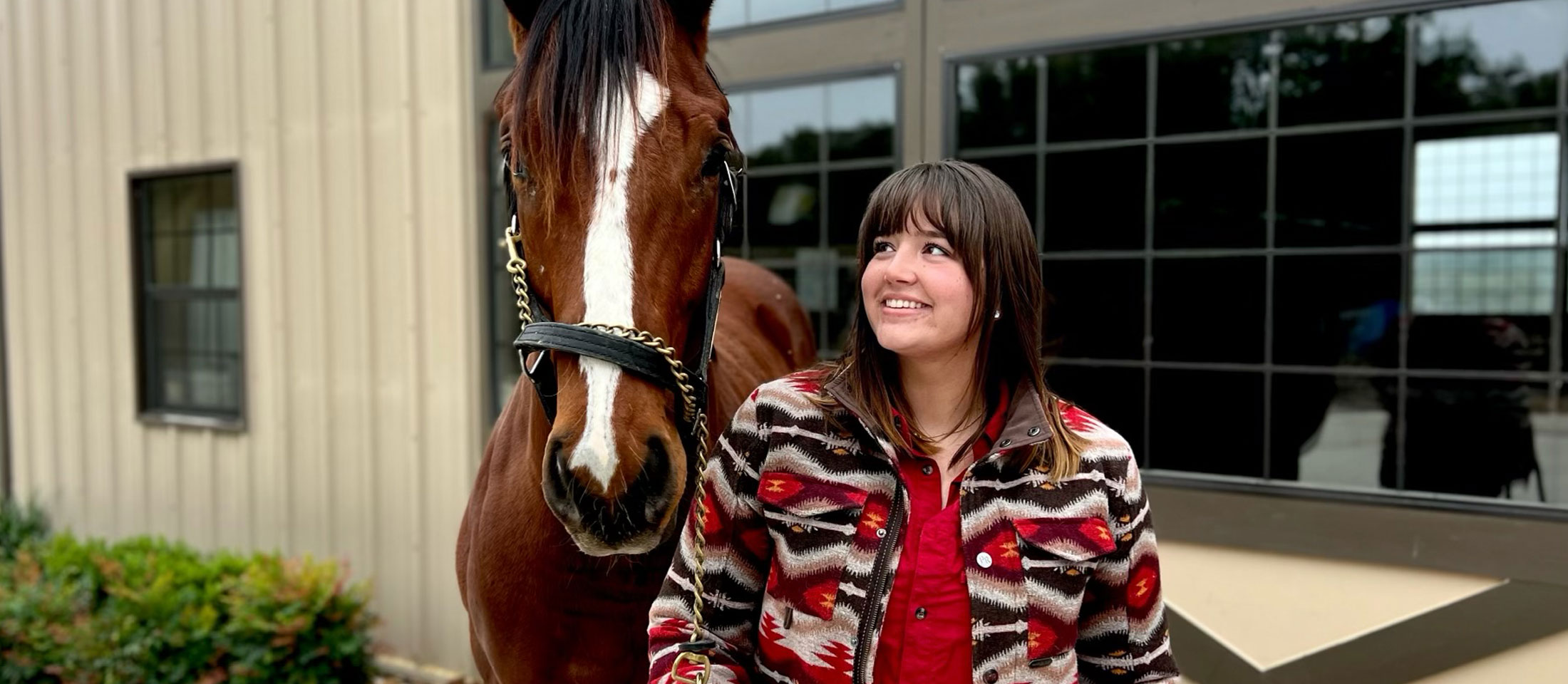
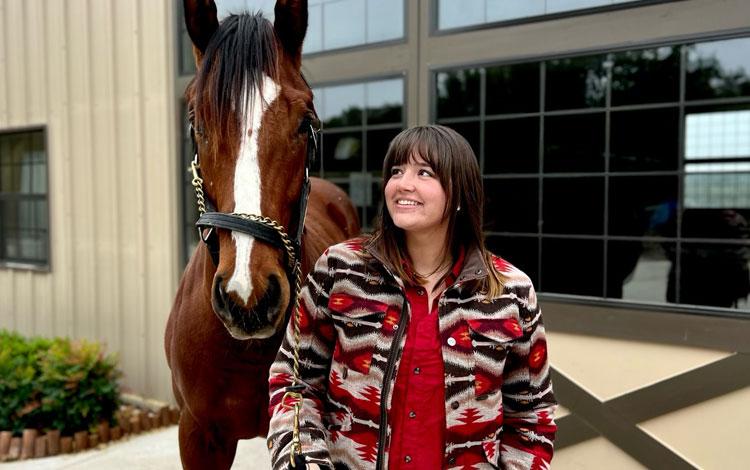
Photo Courtesy of Abby.
When asked if she ever jockeyed the horses, she laughed and said, “I'm six foot tall so I'm a little too big [to jockey]. I actually wanted to be a jockey when I was in fifth grade, but then by sixth grade, I was already too tall. I dropped that dream pretty fast.” Abby hires exercise riders and when it’s time for races, she hires jockeys too. When hiring an exercise rider or jockey, she keeps in mind the yearlings, colts, and fillies are still growing, and their knees have growth plates. She emphasizes the importance of keeping each horse healthy from the ground up, as racehorses rely on sound footing to perform well and win races.
In order for a horse to win a race, it requires hours of training and practice, a good feeding regimen, and a routine. Abby’s routine is consistent since that’s how the horses thrive. “In the morning, everyone gets fed and stalls cleaned,” Abby said. “Then, the yearlings get a 45-minute warm-up, and then we do round pen work.”
Next, they take a few of them to the racetrack for about 4 hours to work each of them individually on the track, whether it’s a gallop or any speed of work. After that, they go back to the barn, where the horses get a break to think and sleep and Abby focuses on paperwork and keeps up with the financials for the barn.
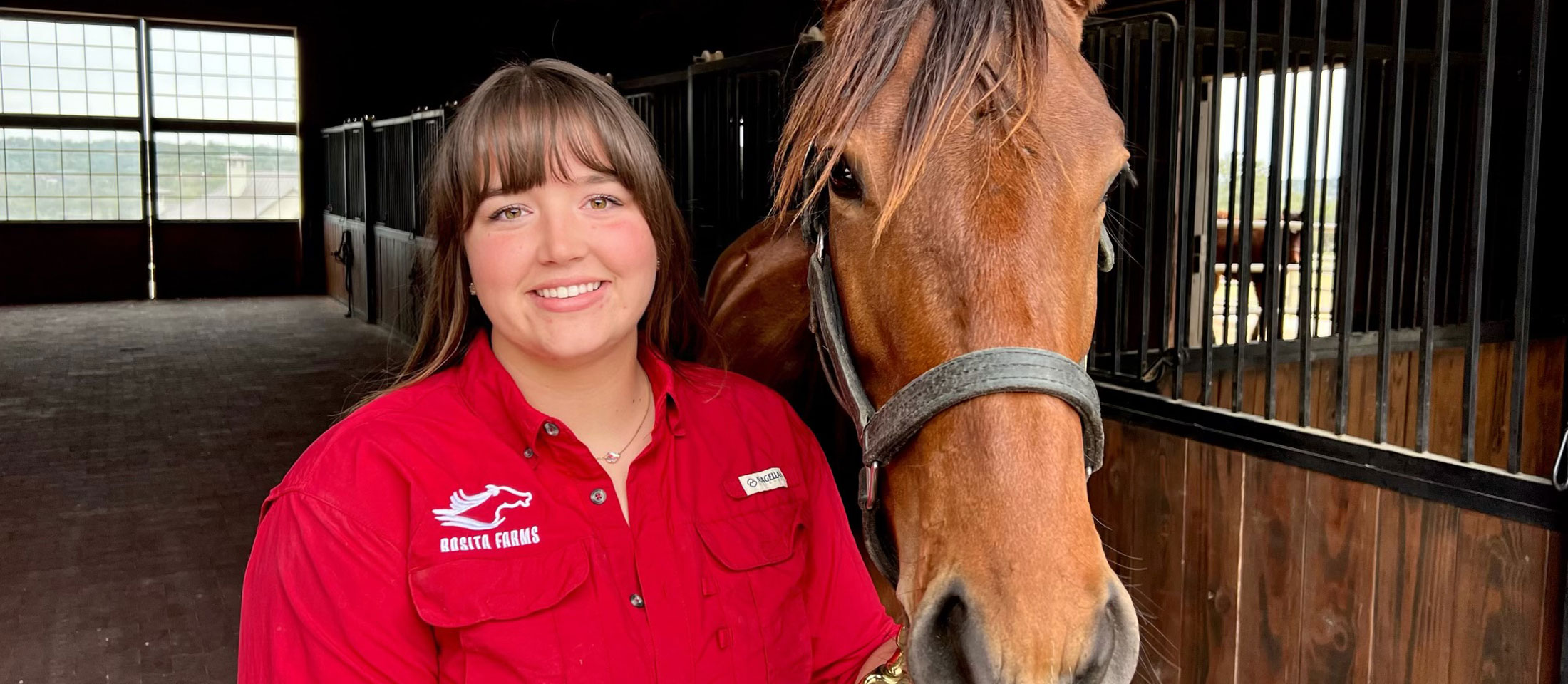
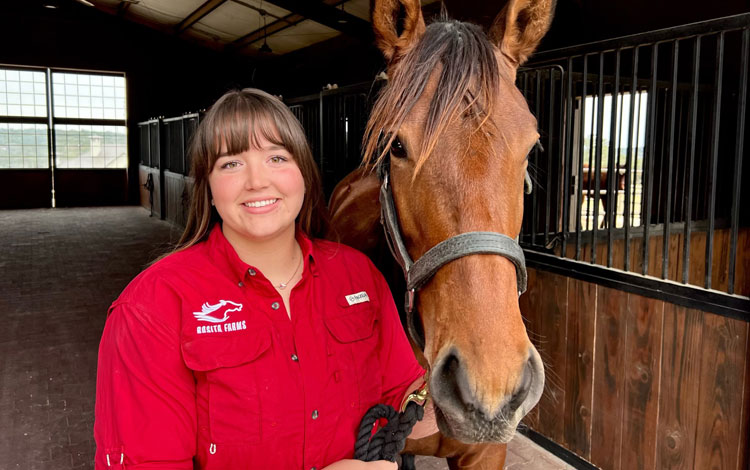
Photo Courtesy of Abby.
“Watching a horse I had a part in training is awesome,” Abby said. She continued, “ We just had a horse that we sold in Kentucky at a yearling sale, that I raised from a weanling and halter broke, that won on, I think, her second out. She won by a few lengths.”
She compared the feeling to going to high school with someone who became a celebrity. “That’s the best way to describe it,” Abby said. “Because you were with them in their training when they just quite hadn't made it yet.”
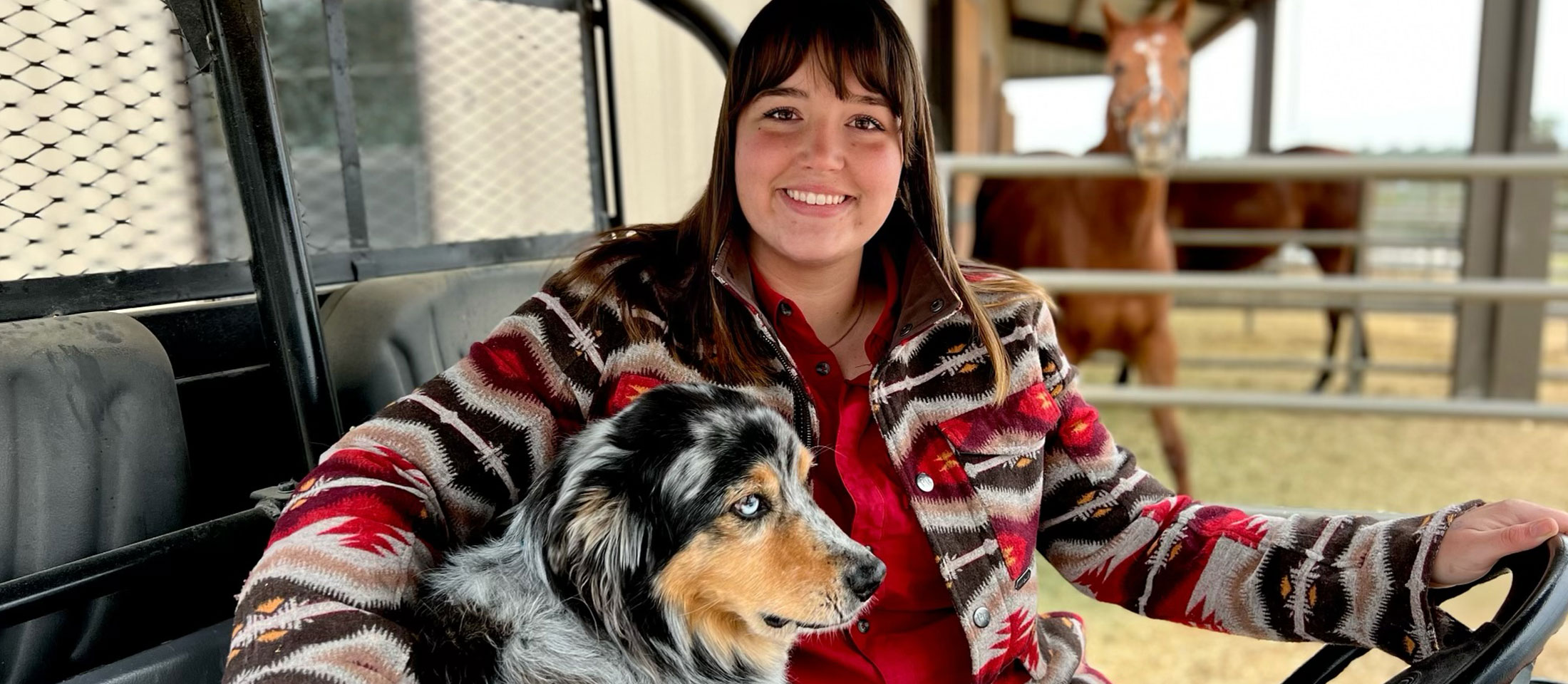
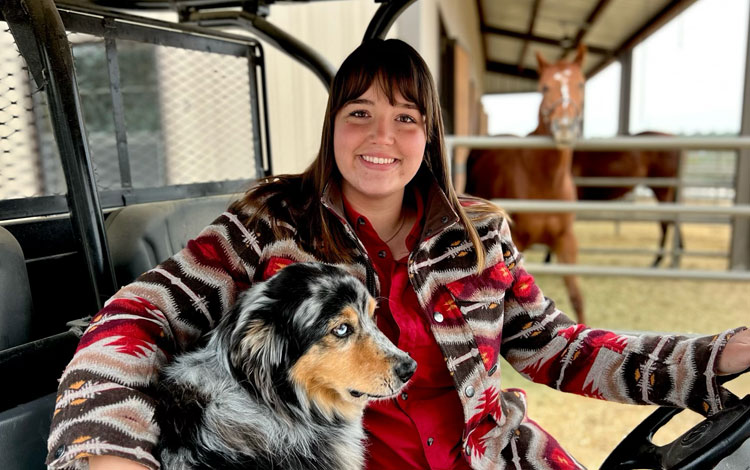
Photo Courtesy of Abby.
As Abby is racing her way to the top through hard work and determination, she leaves some powerful advice for those wishing to get involved in racehorse training. “Start where you can,” Abby said. “I started cleaning stalls and just feeding horses and added to my resume from there.” She encourages horsepeople to keep the course, as she believes, “You'll probably be cleaning stalls until you retire. But that's just it. That's horses.”
One of her favorite sayings from a trainer she learned under is, “Don't put your horse on the payroll because they're a partner. They're not an employee,” says Abby. Exceptional advice from an exceptional trainer. The future is bright for horseracing and for Abby Bettersworth.
Happy National Day of the Horse.